 Our World
Our World  Our World
Our World  Crime
Crime 10 Dark Details of the “Bodies in the Barrels” Murders
 Animals
Animals The Animal Kingdom’s 10 Greatest Dance Moves
 Movies and TV
Movies and TV 10 Box Office Bombs That We Should Have Predicted in 2025
 History
History 10 Extreme Laws That Tried to Engineer Society
 History
History 10 “Modern” Problems with Surprising Historical Analogs
 Health
Health 10 Everyday Activities That Secretly Alter Consciousness
 History
History Top 10 Historical Disasters Caused by Someone Calling in Sick
 Animals
Animals 10 New Shark Secrets That Recently Dropped
 Movies and TV
Movies and TV 10 Forgotten Realities of Early Live Television Broadcasts
 Our World
Our World 10 Places with Geological Features That Shouldn’t Exist
 Crime
Crime 10 Dark Details of the “Bodies in the Barrels” Murders
 Animals
Animals The Animal Kingdom’s 10 Greatest Dance Moves
Who's Behind Listverse?

Jamie Frater
Head Editor
Jamie founded Listverse due to an insatiable desire to share fascinating, obscure, and bizarre facts. He has been a guest speaker on numerous national radio and television stations and is a five time published author.
More About Us Movies and TV
Movies and TV 10 Box Office Bombs That We Should Have Predicted in 2025
 History
History 10 Extreme Laws That Tried to Engineer Society
 History
History 10 “Modern” Problems with Surprising Historical Analogs
 Health
Health 10 Everyday Activities That Secretly Alter Consciousness
 History
History Top 10 Historical Disasters Caused by Someone Calling in Sick
 Animals
Animals 10 New Shark Secrets That Recently Dropped
 Movies and TV
Movies and TV 10 Forgotten Realities of Early Live Television Broadcasts
10 Iconic Professions That Have Almost Vanished
In popular culture of the past there are many jobs that were so ubiquitous they have become an ingrained part of the public mind. Unfortunately, many of these once iconic professions are now gone or are reaching a point of near extinction. Below we list ten iconic careers that are now going the way of the dodo. While some of us may not have been alive when these jobs were commonplace, due to our vicariously experiencing them through old movies and TV shows, it still feels like we missed out. Join us as we wax nostalgic for the good old days.
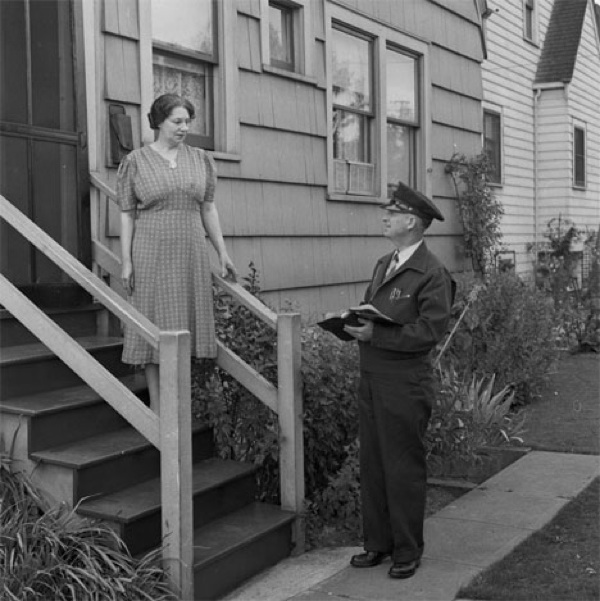
Meter readers were once a very common part of everyday life, no one thought much if a man came around the back of our house in the middle of a day—it wasn’t a burglar, just the meter reader. The meter readers often talked to their customers, knew them personally and could report if something seemed wrong, especially with an elderly person. However, companies are now switching to digital devices that send signals without the need for someone to come and check them, leading to the end of an iconic job and the loss of jobs for many who once enjoyed the profession. While the companies claim they will try to train people for other jobs now that the meter reader job is gone, it is likely many will simply lose employment.

Travel agents have been a part of our culture for a long time. They are skilled at getting us the best deal on our vacation and navigating all of the complexities for us. However, with the advent of the internet the need for travel agents is dwindling greatly. In the past five years travel agent jobs have already dropped by 14%—a trend that is likely to continue. Now that people can book their flights, rental cars and hotel rooms online, while seeing all of the options and deals side by side, travel agents aren’t really needed anymore. According to one expert, if you have used an online site to take care of your travel needs, you have contributed to destroying the jobs of travel agents everywhere. In our new internet based society, it seems that middlemen everywhere are being cut out of the deal, and jobs are being lost in the process.
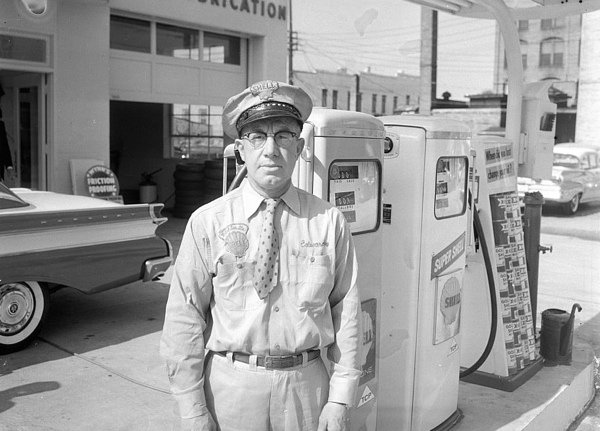
In times past wherever we went to get gas, there would be a gas jockey waiting to pump our gas for us, wash our windows, check our oil and make sure our car was in tip top shape for our continuing journey. However, the existence of full service gas stations has dwindled greatly. Except for two US states, Oregon and New Jersey—where customers are not allowed to pump their own gas—full service gas stations basically don’t exist. While there are occasional gas stations that do it for the nostalgia and customer connection, it is increasingly rare to see this. Many feel that this is not good because many of the services the gas jockeys would offer, such as checking under the hood, are not performed by consumers on their own initiative. This makes the road more dangerous, and leads to consumers’ cars not being in nearly as good a shape as they should be.
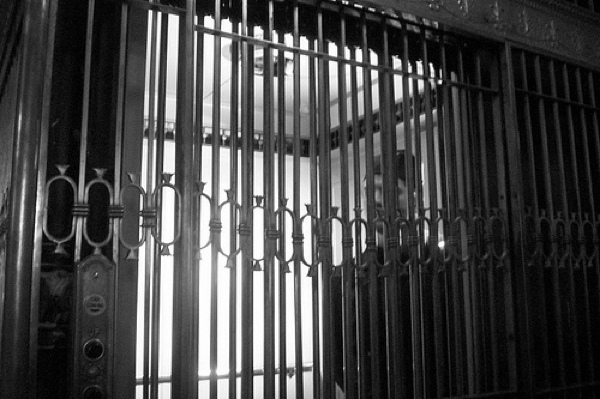
In days past the job of an elevator operator was not only ubiquitous but it was also absolutely vital. Before the high tech elevators we have today, they had to be operated manually. The operator had to use levers and such to make sure that it was level with the floor, and advise people to watch their step. Some likened controlling the earliest elevators to learning how to drive a car. However, as time has gone by elevators no longer need to be operated by hand—they simply need buttons to be pressed. Some places still keep elevator operators around as a homage to the old days, but they spend most of their time doing clerical work and performing customer service.
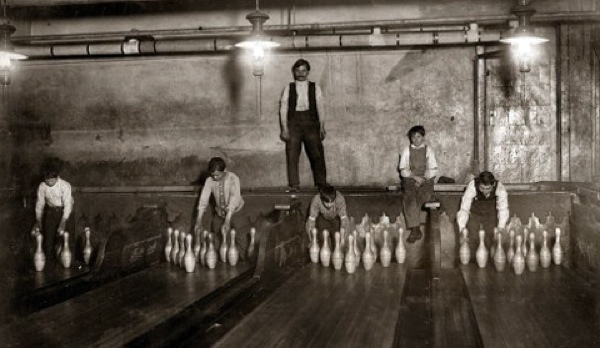
Back in the early days of bowling, before automatic machines had been invented to replace the pins, kids would stand in the alley behind and wait to set the pins back up. One former pinboy recalled that he was paid about eight dollars a night, and would get broken ribs, smashed fingers and all sorts of bruises. Apparently some would throw the ball at incredible speeds, and the kids trying to fix the pins would be trying to watch for ten projectiles headed in their direction. According to one story, the automatic machines were invented after one man became fed up when a pinboy walked out on him in the middle of a game. He was so frustrated that he decided to invent an automatic machine for resetting pins to ensure such a problem would never occur again.

It is hard to say if the postal service will completely fall apart, but things don’t look good for the United States postal workers. Saturday mail delivery is being canceled, although parcel delivery still exists and three thousand and seven hundred locations are being closed, with over a hundred thousand workers losing their jobs. The culprit behind this is, once again, the internet. One of the mainstays of the Postal Service has not been parcel delivery but mail delivery, and with people increasingly using email or other more instantaneous methods of communication to convey messages, mail delivery is quickly becoming a thing of the past. And for those who sort mail, their jobs are being taken over by machines. In ten years, there may no longer be a mailman for the dog to chase.
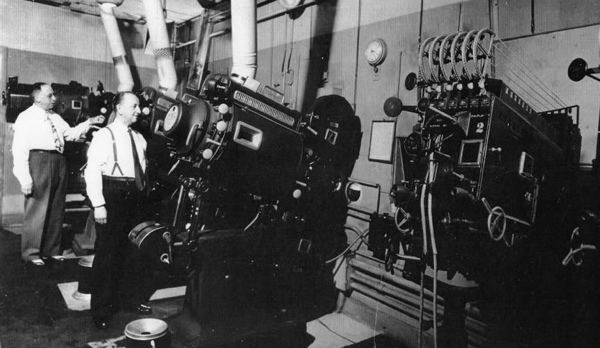
When one thinks of the theater they always think of film reels being put in a huge contraption and then attended diligently by a skilled movie projectionist. However, unfortunately the man who sits in the projection booth and operates the projector may soon be out of a job. Again we have digital technology to thank for this. As progress marches onward, uninhibited by nostalgia for the past, movies are being put on hard drives and everything is becoming digital. Eventually all movies will be digital and film projectors as we know them will be a thing of the past.
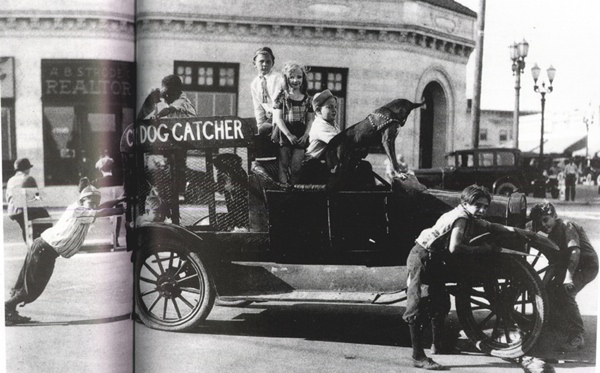
This one is included not so much because the job is disappearing, but because there are so many misconceptions about this in popular culture that I felt it warranted inclusion. The truth is that the profession of dog catcher sort of once existed, but those who performed the function were referred to as “dog whippers”. The main function of those tasked back in the 16th through 19th centuries was actually to keep dogs out of the churches and more generally to deal with stray animals and keep them locked up. As time has gone by, the positions have evolved to control all animals, and also protect animals from those who would hurt them. However, an important misconception to note is the old saying “he couldn’t be elected dog catcher”. The truth is that there is no evidence that a dog catcher has ever been an elected position; it has pretty much always been a job that has been appointed by an executive.
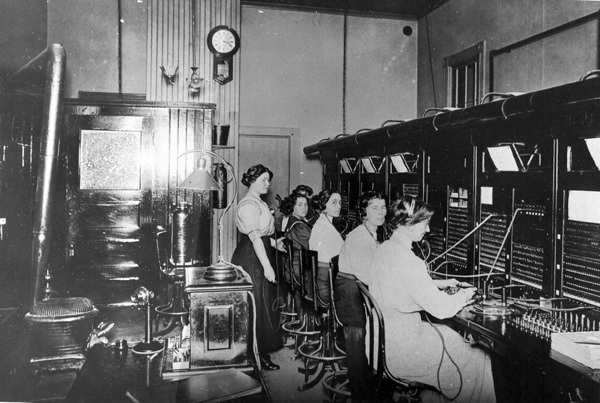
Back in the day, and especially in old movies, telephone operators were not only everywhere, they were absolutely integral. If you wanted to get connected to anyone you needed a telephone operator. Now, however, they have almost completely disappeared. At first they were just relegated to long distance calls, then a few other odd situations, and now you really just don’t speak to telephone operators at all. In the past few years, some of the last remaining centers housing telephone operators have been closed down, the job is simply no longer necessary. Many who once dealt with operators on a daily basis have trouble imagining a world completely without them, but with current technology the position is defunct.
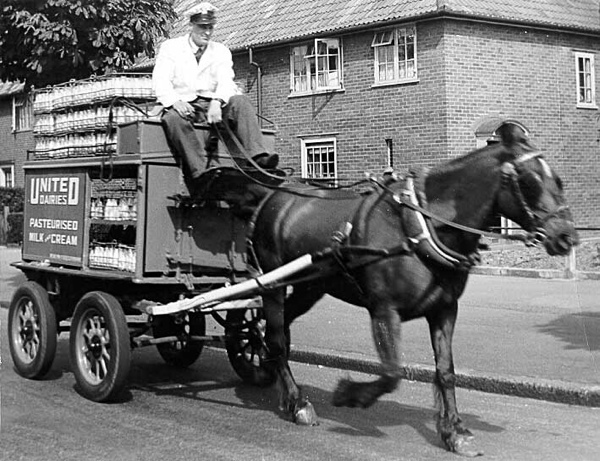
In the old days—again popularized by many TV shows—the milkman was often a friend of the family and a familiar presence. His position was vital. Due to the advent of refrigerators, and new methods that preserve milk for longer, the profession has dwindled to the point that it hardly exists anymore. Many consumers were worried about theft, because in many cases the milk would wait outside the door, where anyone could take it. While the profession had dwindled, it has still not completely disappeared. Around five percent in the United States still have their milk delivered to their home and there have even been new companies created for the purpose of providing this service. Perhaps milkmen will have a renaissance.
You can follow Gregory Myers on twitter where he dreads the day that robots will make writers obsolete.








